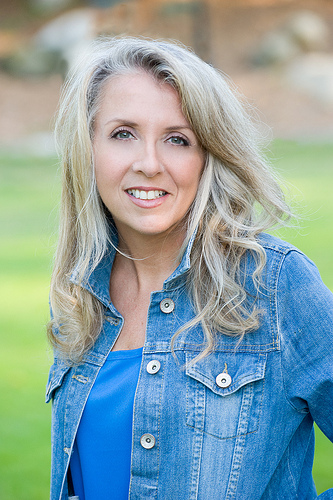 Synopsis:
Synopsis:
Joybird Martin — a thirty-one-year-old Uber driver with cheerfulness to spare — desperately aspires to be a life coach.
She’s so sunny about her chances that even her snarky father — a television writer with a failed third marriage who finds himself canceled by Hollywood — can’t dim her enthusiasm. When he shows up on her doorstep — broke and jobless — Joybird takes him in with no questions asked and strives to balance her bright optimism against his sarcastic pessimism.
It works! Joybird continues sharing her earnest wisdom with her Uber riders.
After she helps Devon Cato, a handsome Wall Street executive, he convinces her to proceed with her plan to be a life coach immediately . . . right from the front seat of her pale blue Honda.
As Joybird’s dreams take the wheel, she finds direction for her clients . . . and herself. She’s not sure what to do about her attraction to Devon since she’s still hoping for a relationship with Noah, a recovering addict and barista.
But she quickly sets a plan in motion to help her father. A journey into his past might just pave the way for her own bright future.
In Joyride, from bestselling author Ellen Meister, an idealistic young woman shares her earnest joy with her Uber clients, her cranky father, and the Wall Street hotshot who started it all.
Review:

Author Ellen Meister aptly describes her latest book, Joyride, as “quirky, funny, poignant, Brooklyn, and . . . life coach!” Inspiration for the story struck years ago. She sought to craft a story putting “two very opposite characters together — a cheerful and painfully earnest young woman (think Leslie Knope from Parks and Rec) and a cynical, sarcastic father (think Dr. House meets Dorothy Parker).” But the path to publication was long – Meister wrote and published two other books before she completed Joyride and rewrote the novel numerous times before she knew she had accomplished her goal.
When Meister’s protagonist, Joybird Martin, is asked whether that is her real first name, she assures the person inquiring that her late mother, a poet, named her. (Meister relates that the name “flew in on the wings of a muse!”) Joybird’s mother was prescient. The name perfectly suits the thirty-one-year-old eking out a living in Brooklyn as an Uber driver. She is also studying Spanish in order to be able to comfortably converse with more of her customers because she enjoys talking with them as she delivers them to their destinations. She recently completed a course on life coaching and is continuing to hone her skills until she is able to open her own practice.
In the meantime, when handsome and stylish Devon Cato, a Wall Street Equities Analyst gets into her pale blue Honda, Joybird invites him to tell her about his day. Her attempts to cheer Devon up after a miserable workday do not go unnoticed. It’s Devon who proposes the concept of a mobile life coaching service to Joybird, calling it “Joybird’s Coaching Coach” and offering to connect her with someone who can set up a website for her. Joybird prefers “Joyride.” But she’s skeptical. Wouldn’t clients prefer to meet with her in the lovely office she has been trying to save up enough money to rent? Or at least via Zoom?
Devon also suggests that they have dinner together. But Joybird has always been “drawn to artists, poets, idealists. Ambition unsettled her.” So she can’t imagine herself being compatible with someone like Devon — a stockbroker. She’s attracted to Noah Pearlman, a recovering addict and barista, with whom she serves at the Brooklyn Chapter of Mightier than the Sword, an organization that helps people express being marginalized through writing. She sees Noah as a man with a big heart and passion for helping others, while Devon initially suggested life coaching might be an extremely lucrative profession. But Noah has not asked Joybird out on a date, and she has yet to work up the courage to make the first move. But true to her character, Joybird soon chastises herself for judging Devon harshly “for his values — the literal content of his character.”
Joybird does need to enhance her income, though. Her father, Sid Marcus, recently landed on her doorstep and, in order to make room for him to move in with her, she had to ask her roommate, with whom she shared rent and other expenses, to move out. After a highly successful thirty-year career as a television writer in Hollywood, Sid has been canceled, a casualty of his own repugnant behavior and the #MeToo movement. Joybird isn’t privy to the details, nor does she want to be. He views himself as a victim. He’s unemployed. His business manager swindled him. His third marriage is over. And even though Sid abandoned Joybird when she was just six years old (he preferred to pursue his Hollywood career, leaving Joybird with her mother, who died two years later), she took him in and has been relentless with her upbeat encouragement, insistent that he can get his life and career back on track. But Sid prefers to wallow, hanging out in Joybird’s apartment, ordering food to be delivered (he was wealthy for so long he has no appreciation of the need to live within Joybird’s modest budget), and pretending to be pitching and developing scripts.
Joybird and Sid, total opposites, are living out “an intergenerational ‘Odd Couple’ conflict,” according to Meister.
We all deserve a chance to become our best selves. ~ Joybird Martin
Sid takes an odd trip down memory lane, reminiscing about Donna DeLuca, a girl he knew in high school. Sid is convinced that he saw her in a restaurant for the first time in forty years. But he froze, unable to approach her. Joybird becomes convinced that if she can just find Donna and reunite her and Sid, there is a chance Sid can find happiness. Because despite all of the ways in which he has disappointed her, Sid remains the one person in Joybird’s life she has always wanted to make happy.
Hilarity ensues as Joybird searches for Donna with the assistance and support of Devon and her upstairs neighbor, Betty Simon. Betty is a seventy-something-year-old retired journalist and free spirit who loves to blast her Joni Mitchell albums, bake brownies containing a little something extra, and gives Joybird unconditional support and acceptance. She is also bluntly honest with Sid. And easily the most delightful character in a story populated with flawed, exasperating, and yet endearingly believable characters. Betty is the friend everyone wishes they had — quirky, unapologetically genuine, and unafraid to lovingly but firmly point out when someone is wrong.
And as the hunt for the mysterious Donna proceeds, Joybird does, in fact, begin providing life coaching services from her Honda, thanks to a wealthy customer who sets out to make Joybird her private chauffeur. Instead, after Joybird helps her, she refers her friends who need advice about life, encouraging them to take a ride with the upbeat young woman who has an inherent talent for making people feel better. And Joybird’s relationships with Devon and Noah unfold (and one of them unravels) in a manner that feels organic and utterly unforced as Joybird discovers and embraces her own power and right to make choices that feel right for her.
Meister’s proven skill at crafting believable banter is prominently on display in Joyride, as is her enviable ability to employ unique plot devices and comedic developments to tackle serious subjects. She wisely does not just relate the story from Joybird’s viewpoint. Her inclusion of Sid’s perspective elevates the story and evokes an intense emotional response from readers. Ironically, early drafts of the book were written entirely from Sid’s viewpoint, but Meister was advised he was too unpleasant and unlikable. Meister was committed to presenting Sid’s perspective, finding him gruff, but often hilarious. Asking readers to love him proved too monumental a task. Eventually, it was toning down his anger that permitted Meister to find just the right tone.
And while Sid is still angry, he is primarily a narcissistic, abrasive alcoholic who has made many, many mistakes in his life. He is aware of his failures. He was not completely honest with Joybird about his reappearance because he did not want her to know about the life-altering, frightening experience that jolted him into feeling that he could not waste any more time before attempting to set things right with his daughter. He sincerely wants to make amends by selling a script that will generate enough income to provide security for Joybird and help his daughter take a more realistic look at the world. He legitimately fears that if Joybird doesn’t “toughen up,” her seemingly unbreakable spirit will eventually be crushed. But Sid is not great at staying on task and despite his best intentions, relapses into old, destructive patterns.
As for Joybird, she may be exceedingly optimistic, but she is not altogether naïve. She, like Sid, possesses a great deal of self-awareness. She understands that her childhood fantasies were at odds with the truth about her parents’ marriage and her father’s abandonment. She carries the scars and, from time to time, events trigger the pain of being left behind. It is her insight that fuels her desire to help others by guiding them beyond disappointment and pain to happy lives. She also recognizes that her father’s often inappropriate and downright crass behavior springs from his own pain and appreciates that he wants to be a better father to her than he was in the past.
In true Meister form, Joyride is more than an enjoyable tale about an idealistic young woman intent on overcoming obstacles in order to achieve a goal. At the outset, Joybird and Sid find themselves on an unexpected path forged out of Joybird’s refusal to abandon the man who did exactly that to her, and Sid’s desire to atone for the pain he caused the daughter he truly loved but had no ability (or desire in those days) to parent. The story is a multi-layered examination of the evolution of a father-daughter relationship through understanding, acceptance, and, ultimately, forgiveness of each other and themselves. Meister has once again created a seemingly light, frothy, and sometimes madcap story that, upon closer inspection, has real depth and emotional resonance.
Joybird and Betty are easy characters to love, but Meister really shines when she deftly humanizes Sid, inspiring readers to cheer for him to finally get his priorities and life in order. As the story opens, there is precious little about Sid to like, but Meister gradually reveals that there is, of course, much more to Sid and despite his horrid behavior, he does love and wants the best for Joybird. As will readers. There is no villain in Joyride. Rather, Meister has again invented a troop of flawed human beings who have experienced hurt, sustained losses and, in spite of their faults, care deeply for each other.
Joyride is a charmingly entertaining and riveting, well . . . joyride of witty dialogue and funny situations. It’s also thought-provoking. Meiser notes that she “wanted to love these characters deeply enough to fully understand their points of view and forgive their flaws” and the story succeeds primarily because Meister’s obvious compassion for her characters and the dilemmas they navigate is infectious.
Excerpt from Joyride
If you’d met Joybird Martin even once, you’d have no trouble guessing which of the vehicles idling in front of the Merrill Lynch building was hers. It was the pale-blue Honda Accord –earnest and dependable — standing out like a cheerful plastic bead in a string of colossal black pearls. The car in front of her pulled out, and Joybird edged forward, unintimidated by the gleaming Navigators, Range Rovers, Escalades, and other behemoths jockeying for position on the Lower Manhattan roadway.
She didn’t think of herself as aggressive, just determined to be in a convenient spot for her Uber customer, because she knew these Wall Street types were easily agitated. And Joybird Martin did not want to be the source of anyone’s angst. She wanted — from the soft center of her tender heart — to be the one who delivered bliss.
She put in her earbuds and opened the Duolingo app on her phone to practice some Spanish while waiting for her rider. The cacophony of New York City’s horns, motors, and underground rumbles was immediately replaced by the app’s gentle intonations. “Mi padre es elegante,” said the disembodied female. Joybird did her sincere best to repeat it with the same accent. Still, she laughed, because no, he most certainly wasn’t.
She continued listening to the soothing voice. “Mi padre es inteligente,” it said. Fair enough, Joybird thought, and clicked through to the next part of the familia section.
There was a knock on the passenger-side window. She rolled it down and gave the man a smile, trying not to startle at his appearance. He wasn’t just handsome — he was heartthrob handsome.
Like a cross between a young Denzel Washington and that actor with a French name she suddenly couldn’t remember. Only this guy sported stylishly futuristic glasses, as if he had something to prove. Joybird tried to settle herself. So what if he was tall, dark, and smoldering? It meant nothing to her.
“I’m Devon Cato,” he said in a voice as assertive as a newscaster’s. He was wearing an impeccable Italian suit and the stoic expression of someone repressing pain. “Can you unlock the door?” His face remained tight.
“Of course!” Joybird chirped, anxious to turn his mood around. She reached for the unlock button so fast she accidentally double pressed, unlocking and relocking before he had a chance to open the door. It took her a few extra tries to let him in as he yanked on the handle.
“I’m so sorry!” she said, flustered and embarrassed as he finally slid into the back seat. Joybird’s rattled reaction unnerved her, as she wasn’t the type of person who became unglued by a pretty face. It just took you by surprise, she told herself, and managed a deep breath.
They had a brief exchange to verify her rider’s destination in Park Slope, Brooklyn. She knew the building — a pricey modern condo with its own gym, incongruous amid the historic brownstones. She glanced at his reflection in the rearview mirror and noticed how sullen and closed off he looked.
“What interesting eyeglasses!” she gushed, hoping the compliment would soften his mood.
He adjusted them on his face, looking dubious about the flattery. “Thank you.”
“Are you a stockbroker or something?” She smiled, hoping he would understand she was really quite friendly and hadn’t meant to lock him out of the car.
“Why do you need to know?” he asked, and she realized he thought she wanted something from him.
“I just like to make conversation,” she said, and pointed toward her phone. “That’s why I’m studying Spanish.”
“You’re studying Spanish to converse with strangers?” He squinted as if trying to figure her out.
“Sí,” she said, giving a polite beep to the driver of a Lincoln Navigator that had just boxed her in. “You know, there’s so much negativity around—I thought it would be a positive gesture.”
Disarmed, he let out a small laugh, releasing some of his tension. “That’s very . . . sweet.”
The Lincoln SUV pulled up, and she edged out behind it, merging into traffic.
The man tapped at his phone as if searching for something. “Uber says your name is . . . Joybird?”
She nodded, feeling more grounded as she glanced at his face again before directing her focus back to the road. “That’s me,” she said.
“For real? Your parents named you Joybird?”
“My mom was a poet,” she explained. It was the answer she’d been giving nearly her whole life.
He nodded, processing the information. “And maybe a little prescient.”
“You mean because I’m so upbeat?”
“Yes,” he said, a catch of surprise in his voice. Probably because he didn’t expect her to know what prescient meant. She got that a lot — people underestimating her based on her cheerfulness. But it was her philosophy that you didn’t have to be stupid to be happy.
“Tell me about your day,” she said. It was her favorite way of engaging her riders. And since he had seemed so despondent, she thought he might want to talk about it.
He scoffed. “Trust me, you don’t want to know about my day.”
“But I do!” she insisted.
He went silent for a long moment as he looked out the window. Then he released an extended breath. “One of our accounts blew up because my idiot boss wouldn’t take my recommendation.”
“That sounds bad.”
“Catastrophic.”
Joybird turned right onto West Street. “So what now?” she asked, hoping to draw him out. “How do you fix it?”
“Can’t. We lost their business.”
She chewed on that for a minute and could tell he was retreating into the silence, going to a dark place. She needed to jolt him toward the light.
“Are you good at what you do?” she asked, her voice clear and loud against the Manhattan traffic.
“I’d better be.”
“I mean, you get results, right? It’s quantifiable?” She took another glance at him in the rearview, and he was staring right back, looking surprised. Something had distracted him.








Comments are closed.